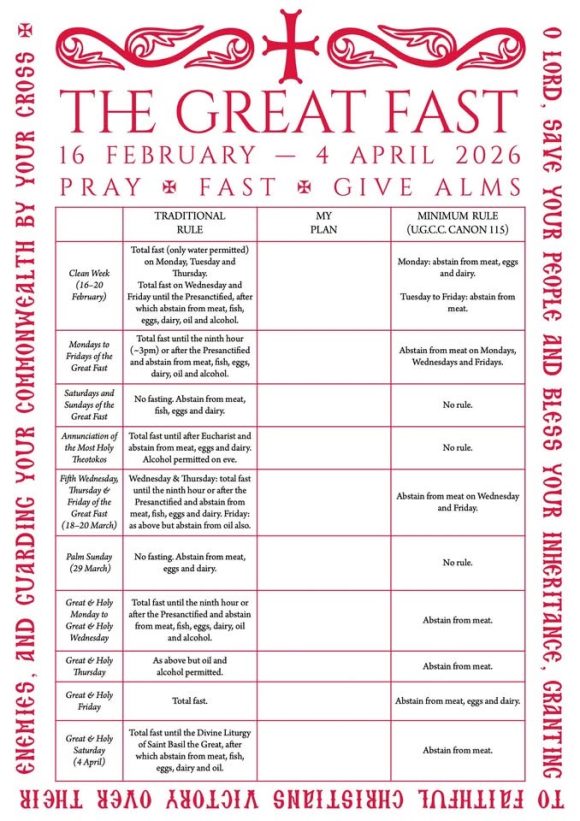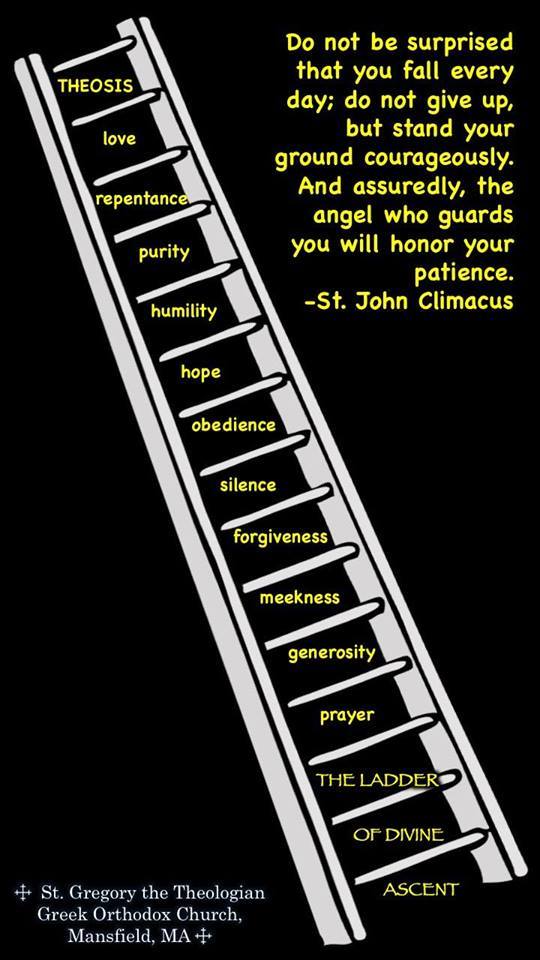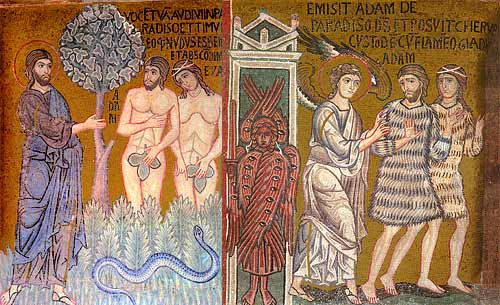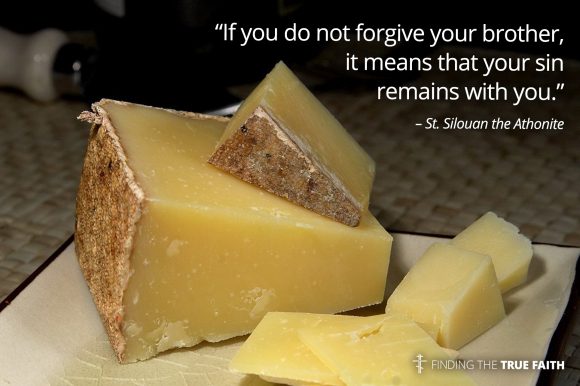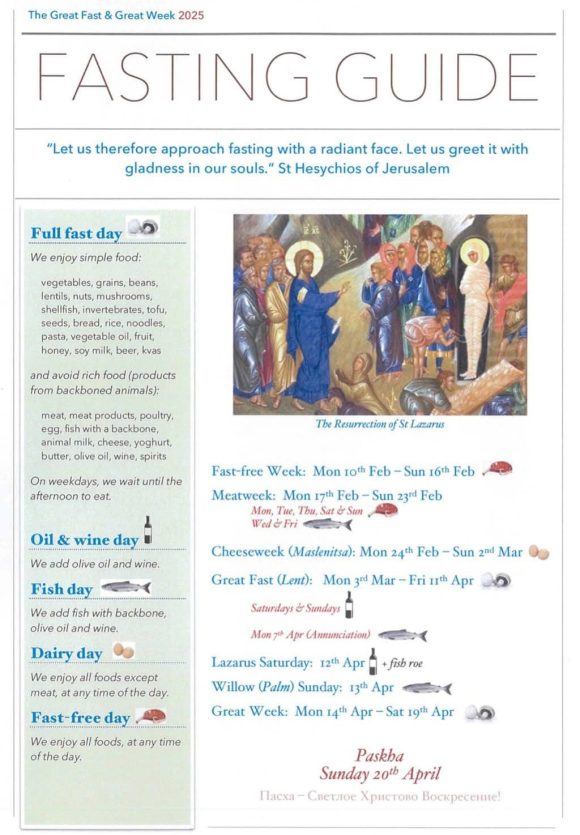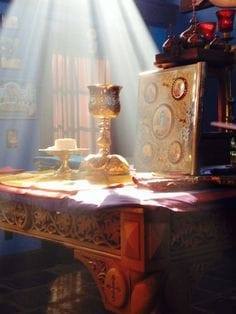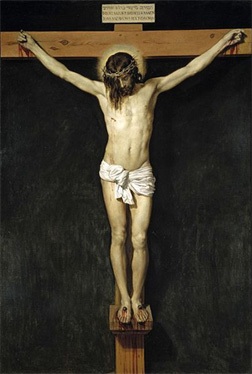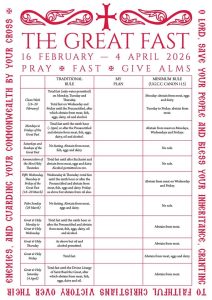 Each year the onset of the Great Fast raises questions about how one should be fasting and what the Church requires. And, while we should never approach fasting pharisaïcally, it is spiritually profitable to be aware of traditional practice and the minimum required by the Church in order to chart one’s own course according to personal circumstance. To this end, we have produced a chart detailing the traditional fasting rule and the canonical minimum set by the Holy Synod of the Ukrainian Greek Catholic Church with an empty column for one’s own fasting plan. ✠
Each year the onset of the Great Fast raises questions about how one should be fasting and what the Church requires. And, while we should never approach fasting pharisaïcally, it is spiritually profitable to be aware of traditional practice and the minimum required by the Church in order to chart one’s own course according to personal circumstance. To this end, we have produced a chart detailing the traditional fasting rule and the canonical minimum set by the Holy Synod of the Ukrainian Greek Catholic Church with an empty column for one’s own fasting plan. ✠
Category: Great Fast-Lent
Lent –the Great Fast
Lent begins forty days before Flowery (Palm) Sunday, on the Monday after Forgiveness Sunday (Cheese-Fare Sunday), and lasts until the Friday preceding Palm Sunday.
Holy Week is a special Fast in honor of our Lord’s Passion, and lasts from the evening of Palm Sunday until Holy Saturday inclusive.
Fasting is voluntary. It is an imposed, self-discipline, and expected of all who are physically able. To help us, the Church sets out both the maximal and minimal rules for fasting. Faithful Christians need to take into account their individual circumstances, – health, age, physically, demanding jobs, etc., when making decisions around fasting. With the exception of nursing and expectant mothers, small children, the poor, the mentally or physically, ill or aged, all are required to keep the minimal fast
Penitential fasting practices, repentance and abstinence that aim to expiate the sins committed and to achieve a greater level of perfection for personal sanctity are the oldest tradition in the Ukrainian Greek Catholic Church. (Canon 115 §1 of the Particular Law of the UGCC).
Canon 115 §2 of the Particular Law of the Ukrainian Greek Catholic Church imposes on all faithful the following obligations during the Great Fast:
A strict fast is observed on the first day of the Great Fast and Passion Friday, i.e. abstention from meat and dairy products and eggs as well as foods that contain these ingredients.
Abstention from all meat and foods containing meat is to be observed during the first week of the Great Fast and all days of Passion Week.
During the Great Fast, abstention from the consumption of meat and meat products is to be observed on all Mondays, encouraged on Wednesdays and Fridays. All other foods are permitted on Tuesdays and Thursdays.
6.3 of the same canon enumerates those who are dispensed from any obligation to fast:
children up to 14 years of age; persons over 60 years of age; the gravely ill; pregnant women; postpartum mothers and those who are breastfeeding; those who are travelling (if the travel time exceeds eight hours); those engaged in heavy labour; those who eat from the table of others; the poor who live from charity.
The Fourth Sunday of Lent: forming virtue
On the 4th Sunday of Lent on the Byzantine liturgical calendar, we remember a great monastic father, St. John Climacus (579-649). He wrote a book called, “The Ladder of Divine Ascent,” encouraging his monks to grow in virtue. Various virtues and asdcetical practices are compared to rungs on a ladder. These are good disciplines for us also during the Lenten season.
Sunday of Adam’s Exile from Paradise
EXILE
(Sunday of Adam’s Exile from Paradise)
This Sunday immediately preceding the beginning of Lent recalls the Exile from Paradise, inviting us to embrace “Adam’s Lament” over a Paradise Lost. How and why should we relate to the whole topic of *Exile*, which is a leitmotif of Great Lent? Note that it’s also the main theme of Psalm 136/137, By the Rivers of Babylon…, chanted in our churches these past three Sundays. So, there’s something very important about *Exile* that we’re meant to recognize as part of our human (or human-divine) story, as we enter into the voluntary, communal *Lament* of the Lenten season.
We all experience some form of exile, or separation from something or someone beloved, at some point in our lives. Some of us are from war-torn or otherwise troubled countries, which we had to leave and which we might miss. Some of us have experienced a painful divorce from a once-beloved spouse. Others of us might have lost our jobs; or lost a loved one who passed away, and we might feel lost without them. Maybe we have experienced burnout in this or that occupation, and feel we have lost ourselves. Or maybe we have lost our freedom by slipping into a crippling addiction or obsession, which now alienates us from others, to some degree.
These are all different experiences that can help us relate to the biblical narratives related to *Exile*. And we can channel our pain toward and into the healing hands of a loving Father, our loving God, who clothes us (as He made clothing for Adam and Eve at the end of Genesis 3) before entrusting us with the new, productive work we are given to do henceforth in our Exile. This “work” is described in Genesis 3 as bearing children and working the soil, symbolizing the kinds of God-given creativity we are blessed with in different ways, our creativity that brings forth new life in our world.
It’s not a joyless or unproductive “lament,” is my point, even while we do have this hole in our hearts that “remembers” our Paradise Lost. On the way of the cross, which is always leading to resurrection, our pain is transfigured into new life, with God’s blessing and “clothing.” The new clothing in the era of the Church is our being clothed in Christ, all of us who are baptized in Christ. We’re getting back in touch with this reality, with these truths, throughout Lent, so we can “re-story” ourselves and regain a proper perspective of our common, human-divine story, which is neither meaningless nor purposeless in our Exile. Anyway, these are a few thoughts on our upcoming, dignifying journey towards Pascha. Happy upcoming Lent to you, dear friends. Forgive me and pray for me a bit, if you could.
Cheesefare Sunday
Today, Cheesefare Sunday also known as Forgiveness Sunday – March 2nd.
For those who observe the full fasting disciplines, today we say farewell to dairy products until Pascha. The Church, in her wisdom, gives us good advice: fast as you are able. But do something.
Listen closely when you next pray the Our Father.
Blessed Lent!
Fasting Guide
The wisdom of the Church is that we fast according to what we are able. Some can follow the Lenten guide well, others due to age or health may not be able to follow the guide –do the best you can do. All can do something. An important note: we do not approach the Fast legalistically.
A good rule of thumb is do as much as you think you can, and then a little bit more (and next year, build on that). Remember that prayer and almsgiving are the other two pillars of Lent, so attend the Liturgy of the Pre-sanctified Gifts (Fridays at 7pm starting on March 14) and whatever other Lenten services are offered; and give generously to those in need. The purpose of fasting is to open ourselves up to the spiritual life, to theosis (divinization), coming closer to life in the Holy Trinity, turning away from sin and living in Grace.
When questions/concerns arise, you ought to prayerfully discern with your spiritual father (e.g., Father Iura) how you will observe the fast this year. If you become fixated on what you are eating, you are doing it wrong.
The scope of faith as we approach Lent
“Do you wish to honor the body of Christ? Do not ignore him when he is naked. Do not pay him homage in the temple clad in silk, only then to neglect him outside where he is cold and ill-clad. He who said: ‘This is my body’ is the same who said: ‘You saw me hungry and you gave me no food’, and ‘Whatever you did to the least of my brothers you did also to me’… What good is it if the Eucharistic table is overloaded with golden chalices when your brother is dying of hunger? Start by satisfying his hunger and then with what is left you may adorn the altar as well.”
Reflection on Matthew 25:31-46
St. John Chrysostom (349-407)
Meat-Fare Sunday
 This weekend is meat-fare Sunday, one of our preparation for the season of Lent.
This weekend is meat-fare Sunday, one of our preparation for the season of Lent.
Fr James Graham, writes:
…today’s reading from his first letter to the Christian community in Corinth, St Paul talks about fasting and freedom. But he doesn’t focus on what we should fast from or on when we should fast. Instead, he talks about fasting in terms of our love and responsibility for one another. We don’t fast because we’re ignorant or afraid of God. We don’t fast to punish or hurt ourselves, or because we like suffering. We don’t fast because the rules prescribe fasting and it would be a sin to break the rules. We do fast from certain foods and behaviors so that we don’t tempt or mislead others, who might not be as strong as we are.
In St Paul’s time, the problem was eating meat that had been sacrificed to pagan gods, to idols. By eating the meat, people would be joining in the worship of the false gods—or at least it would look like that. In fact, St Paul says, it wouldn’t matter, because the idols are not real gods and have no power. But people who don’t have strong faith wouldn’t understand that, and they would think it was OK to worship idols even if you claimed to be Christian. So it will be best for all Christians not to eat the meat sacrificed to idols.
In our own time, of course, we don’t have to worry about meat that has been sacrificed to idols. But there are other kinds of false gods that we can be tempted by—our own pride, our own appetites, our own laziness, our own attitudes and desires—the kind of thinking that says, “I like to eat meat, and I know it wasn’t offered to an idol, so I can eat it any time I like.” But does that help us to focus on God’s goodness in our lives? Not really. Our laziness leads us astray; we don’t need anybody else to do it.
St John of the Ladder, the 4th Sunday of Great Lent
Today, we observe the the Fourth Sunday of Great Lent and our Byzantine Catholic Church commemorates our Father among the saints, John Climacus of the 7th century. He is also called St. John of the Ladder. In addition to the commemoration made today his other feast day is March 30.
As you know, he is called Climacus due to his authorship of the great spiritual work, The Ladder of Divine Ascent. In this work, St. John posits describes how we can ascend to God, like the Ten Commandments or the Eight Beatitudes tells us how we will find order in our lives. Chaos –disorder– will never lead us to God but to further chaos and anxiety. Thus, the book outlines 30 steps of the spiritual life as rungs of a ladder leading to heaven. As we climb and gain a new understanding of what it means to live the virtuous life through God’s help and grace, we ascend further towards the Kingdom of God. You can understand why The Ladder of Divine Ascent is required reading for the season of Lent. Hence, now is an excellent time to approach the priest to receive the graces attained in the sacrament of Reconciliation (Confession of sins).
St. John’s commemoration on one of the Sundays of Lent is given to us, after the Sunday of the Holy Cross, as a bearer and proponent of Christian asceticism. The ascetic example of the great Saint John inspires us in our Lenten journey.
Sister Vassa explores in this video the meaning of remembering St. John Climacus:
Third Sunday of the Great Fast –Sunday of the Holy Cross
On this the Third Sunday of the Great Fast, St. Michael’s faithful honored and venerated the Holy and Life giving Cross of Our Lord and Savior Jesus Christ. At the Divine Liturgy, we venerated the Cross as we arrived at Mid-Lent.
Fr. Iura reminded us in homily that we must, as the Lord has authoritatively taught, take up our cross. The cross is THE path to salvation.
